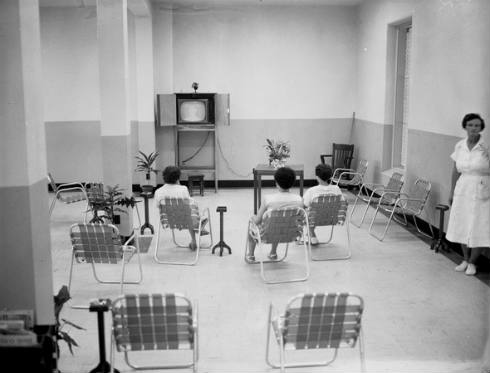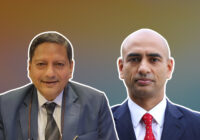It is a formidable proposition, in today’s context, to decide what’s real.
To borrow from Charles Dickens, it is the best of times, it is the worst of times. To highlight another paradigm, we are traversing along in a society where impulse is given its way. In the process, we are increasingly not willing to grow up. We are growing up, in a way, but only as half-adults. More than that, we are simply running after our fantasies and illusions.
You need not search the horizons for a functional retort to such dilemmas: a dilemma compounded by perplexity. We are just not able to catch up with ourselves. We are often defeated by our own creation—a simple extension. Its identity? You got it right: speed.
What’s more, there are crowds everywhere, and we are almost lost to ourselves and bored on the basis of a mundane existence. Blame it on the mores of our highly-inflationary world and you have a parody: People seem to look alike. You look like somebody else with the same element of stress and tension; and that somebody looks so much like you.
Birth-Writes
While our kids are growing up on a TV diet—their surrogate mother, or babysitter—we grown-ups are leading a lateral life, catching glimpses out of the corners of our eyes, not minds. We keep the TV or the ubiquitous remote control on and change channels, or watch the latest sporting event, for the heck of it. Perish the thought whether or not one has had a feel of the willow, racquet or the club, at any level. It’s not needed. Just like with music, you needn’t be a trained musician to appreciate or write about it. Thanks to TV, just about everybody is an expert on any, or every, subject—maybe even a successful blogger in their own right. And, why not?
This is, after all, the happening age, where things happen by birth-write.
It’s not that we don’t see what’s coming out of the side-view mirror. We call such elements intimacy, not proximity, or sameness. So, when we see millions like ourselves all over the world, our eyes get focused on the familiar—uniformity, likeness or resemblance. Not distinction and difference—as the Indian philosopher Madhvacárya, the founder of Dvaita (Dualist) school of Vedanta, or Immanuel Kant in the West, expounded and initiated us to follow if only we could, provided we were not bound by our own prejudices.
This leads us to hope—of a visage, and also vision, being propelled by hope. Hope has always been the long-cherished possibility of community life. That’s how our modern, mass society has evolved—a mass society with a gigantic army of rival siblings. Yet in today’s world, the word sibling is representative of the family, not a metaphor. The term holds on its own, while bringing into play certain tendencies, habits and heartaches. The outcome? Grown-up adults regress toward adolescence, while more and more adults prefer not to become adults. Worse still, most of us are too reluctant to imagine any life coming from the vertical plane, or from tradition and religion, devotion and spirituality.
We all agree that only some sections of our society have a certain hold on the development of such new sibling qualities. As poet, storyteller, translator and worldwide lecturer Robert Bly puts it, the rest of us are slowly moving in that direction—even if we don’t fancy that course. The fact of the matter is we have all somehow arrived. You know why.
Participative Mystique
You just can’t speak to any individual who’s not of your age today. She or he won’t listen to you. She or he will think that you are not worth listening to, more so if you are not within that age-frame. It means just one thing: We cannot stop our slide into antediluvian existence. As Bly emphasizes succinctly:
“Drastic change (has produced) this social primitivism … a new identity is found in embracing a mass movement … (the) mass movement absorbs and assimilates the individual … (who) is thereby reduced to an infantile state, for this is what a new birth really means: to become like a child. Well, children are primitive beings — they are credulous, follow the leader, and/or readily become members of the pack … Finally, primitivism follows, more so when people seek a new identity by plunging into ceaseless action and hustling. It obviously takes leisure to mature. People in a hurry can neither grow nor decay; they are preserved in a state of perpetual puerility.”
It’s true that our society of half-adults has advanced far too much in several countries, more so in nations built on technology and affluence. It’s catching up fast elsewhere and rapidly at that. You may also be a part of such a revolution already. If you aren’t one, it’s time you joined. So, what are you waiting for? Just register. Just do it. Only then will you be able to savor some of its characteristics—or peculiarities.
It is a formidable proposition, in today’s context, to decide what’s real. Because a sibling society participates in a plethora of non-events, but events all the same—like a beauty pageant everyday; or a truly democratic film awards ceremony, with a fixed script, or a listless TV serial as a family get-together. Such excursions are au fait in our society—something that no one really objects to. It is a sort of trance, induced without hypnosis. Just think of it. You watch two events—a live and a replay—simultaneously. You may call such a foray, which we are all so adept at imposing on ourselves, to quote Bly, as contemporary primitivism, or “participative mystique.”
This is not all. Most of us have the baptism of water, not fire, in every aspect of life too. For example, the launch of a new book, authored by a celebrity. Or a dance, or singing debut, at the proverbial drop of a prelude. The assortment of views, on such occasions, is universal. Tons of praise for the artist who has learned and, in some cases, even mastered their art—of what would otherwise take more than 8-10 years, or a lifetime, to achieve—in a year or two. This is genius, of course. The plaudits are well-channeled, because the compere is game to the idea, or vocation.
Spiritual Pollution

© Flickr
Most jaunts or non-events have, inextricably, become a part of our psyche—a regular global feature. Add to that TV and the internet, and you’ve a host of contests, with prizes and gifts. Perhaps it’s pretty hard for some of us to get away from envy when we look at the electronic razzmatazz. Well, there are too many of them, out there, waiting. You could pick and choose your own trump card—for a good copy—even if you don’t belong to the tabloid press. Too bad? Maybe. But that’s the way it is. Because it’s too hard to be as popular as you are supposed to be. You know why. Sigmund Freud’s super-ego, or Interior Judge, has altered its requirements in our age and we just can’t do a thing about it. Freud’s benchmark today is also insistent on early success, at age 20 or 21. It has changed our perceptions, and made our youth quite snooty and too proud to stand on somebody else’s legs—if not their own—which is just fine. Yet they are firing on all cylinders, and trying to attain instant fame, not excellence.
Picture this. In the past, our conduct was dictated by one primal motif: obedience to parents, sexual purity and high morals. The super-ego today, with some exceptions, no longer has a Mahatma Gandhi, Jesse Owens or Pele to hold its bearings. The focus, instead, is on a celebrity, movie stars and models in several “adverteasements,” and TV serials and soap operas. Not that it’s all bad—a sort of spiritual pollution. It’s a major paradigm-shift because, for one who isn’t or doesn’t become successful and well-loved, punishment today is swift and ruthless. When that happens, god forbid, our self-esteem receives a battering from inside.
The inevitable fallout is that one makes it to a TV talk show and bares it all. What next? Dud, not voila. Bly again puts the imbroglio in perspective. He says that the furious competition of peers or siblings has led to a new template: Strive not to be good or great, but famous, or rich because our community has been supplanted by TV and entertainment.
So you’d ask a valid question, “Where have all the grown-ups gone?” Grown-ups who inculcate the value of good grounding and also reading in their kids and themselves, spend time with them at the dinner table, with the TV switched off, or share a thought or two in their problems and pleasures. Not that all adults need dazzling breadth and insight—to inspire, console, enlighten and renew our understanding, or have the capacity to transforming the world. Far from it. Some certainly do. What we actually need today is a clear expression. As philosopher Jiddu Krishnamurti put it so perceptively, “When you live everyday with what is and observe what is, not only out there but inwardly, then you will create a society that will be without conflict.”
It is a tall order, yes, but not impossible. It also, in more ways than one, sums up our responsibility—a vital call for rediscovering our adulthood. Of an adulthood that is strong enough to approach our children and teach them what to stand up for—or what to go along with—more so in a world that’s gone increasingly mad.
The views expressed in this article are the author’s own and do not necessarily reflect Fair Observer’s editorial policy.
Photo Credit: Florida Memory / Flickr
 We bring you perspectives from around the world. Help us to inform and educate. Your donation is tax-deductible. Join over 400 people to become a donor or you could choose to be a sponsor.
We bring you perspectives from around the world. Help us to inform and educate. Your donation is tax-deductible. Join over 400 people to become a donor or you could choose to be a sponsor.
Support Fair Observer
We rely on your support for our independence, diversity and quality.
For more than 10 years, Fair Observer has been free, fair and independent. No billionaire owns us, no advertisers control us. We are a reader-supported nonprofit. Unlike many other publications, we keep our content free for readers regardless of where they live or whether they can afford to pay. We have no paywalls and no ads.
In the post-truth era of fake news, echo chambers and filter bubbles, we publish a plurality of perspectives from around the world. Anyone can publish with us, but everyone goes through a rigorous editorial process. So, you get fact-checked, well-reasoned content instead of noise.
We publish 2,500+ voices from 90+ countries. We also conduct education and training programs
on subjects ranging from digital media and journalism to writing and critical thinking. This
doesn’t come cheap. Servers, editors, trainers and web developers cost
money.
Please consider supporting us on a regular basis as a recurring donor or a
sustaining member.
Will you support FO’s journalism?
We rely on your support for our independence, diversity and quality.






